不同的課型,,共同的目標(biāo)——初中高端英語(yǔ)項(xiàng)目外籍教師進(jìn)行公開課展示
發(fā)布日期:2019-12-27 信息來(lái)源:
12月下旬,,初二年級(jí)高端英語(yǔ)項(xiàng)目外教Mr. Zucker、Mr.Blake和Mr. Amar三位外教進(jìn)行了小說(shuō)閱讀,、科學(xué)及閱讀課的公開課展示,。初中高端英語(yǔ)項(xiàng)目負(fù)責(zé)人張麗君主任以及英語(yǔ)教師共同聽課觀摩,。三位外教展示了外教課堂以不同的課型,多途徑地培養(yǎng)學(xué)生的英語(yǔ)語(yǔ)言能力,,提升學(xué)生的英語(yǔ)思維,。
小說(shuō)閱讀課內(nèi)容為Narnia第13-14章內(nèi)容。Mr. Z在小說(shuō)閱讀教學(xué)中注重培養(yǎng)學(xué)生良好的預(yù)習(xí)習(xí)慣,,在課堂引入環(huán)節(jié)以問(wèn)題鏈的形式引導(dǎo)學(xué)生理解故事主線,,以mind map幫助學(xué)生理清文章主線。在課堂任務(wù)設(shè)置上,,教師關(guān)注小說(shuō)小說(shuō)的語(yǔ)言特點(diǎn),、故事的敘事方法。不斷啟發(fā)學(xué)生在語(yǔ)境中理解生詞詞義,,并進(jìn)行操練,。同時(shí),讓學(xué)生關(guān)注作者寫作手法,。
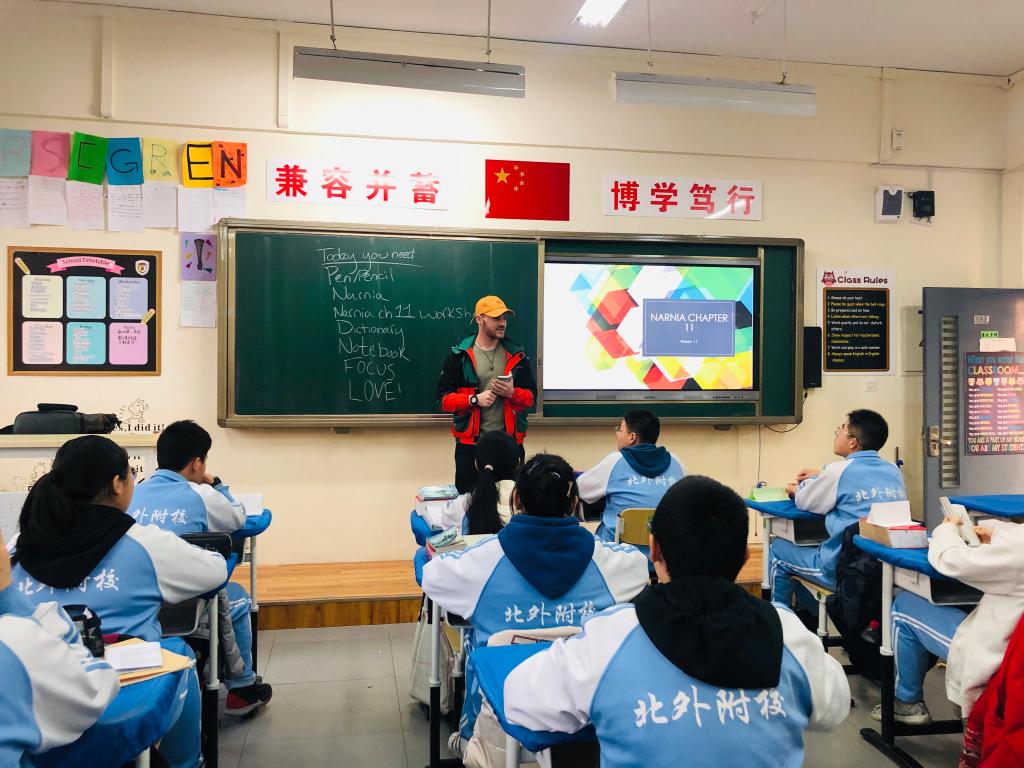
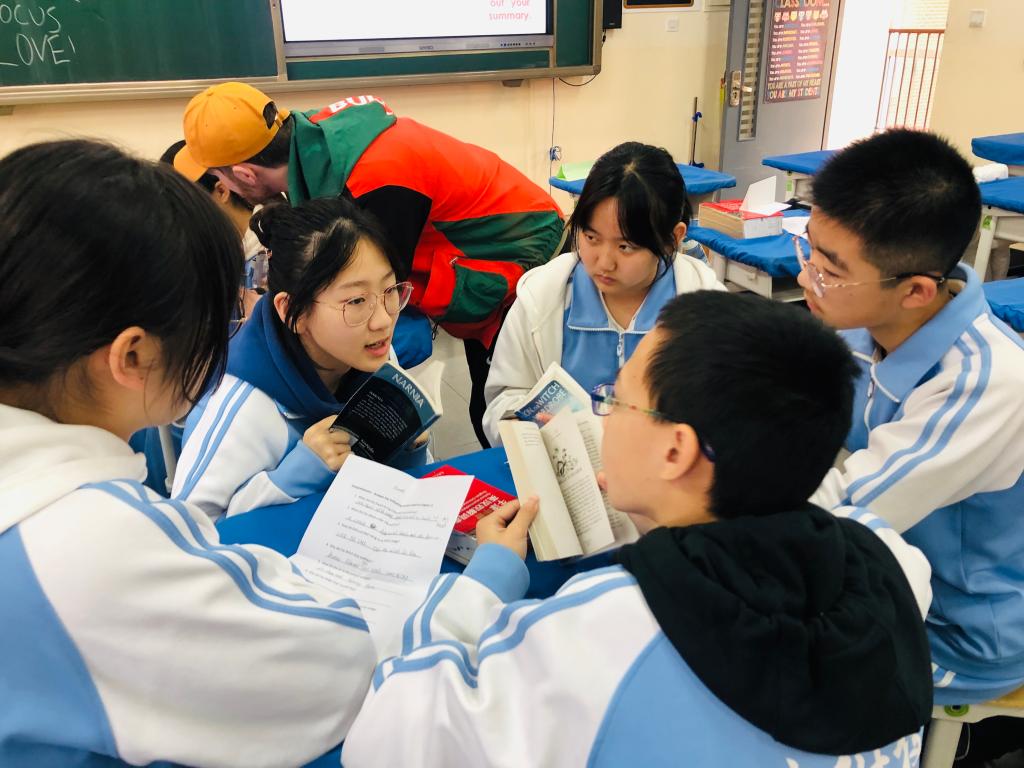
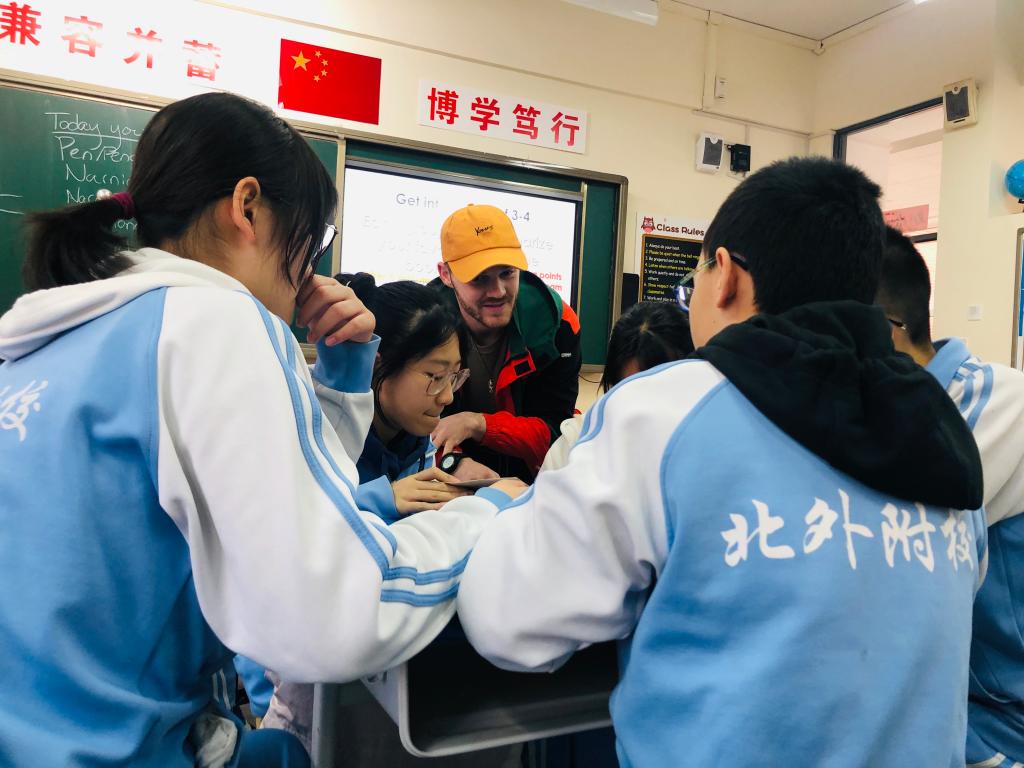
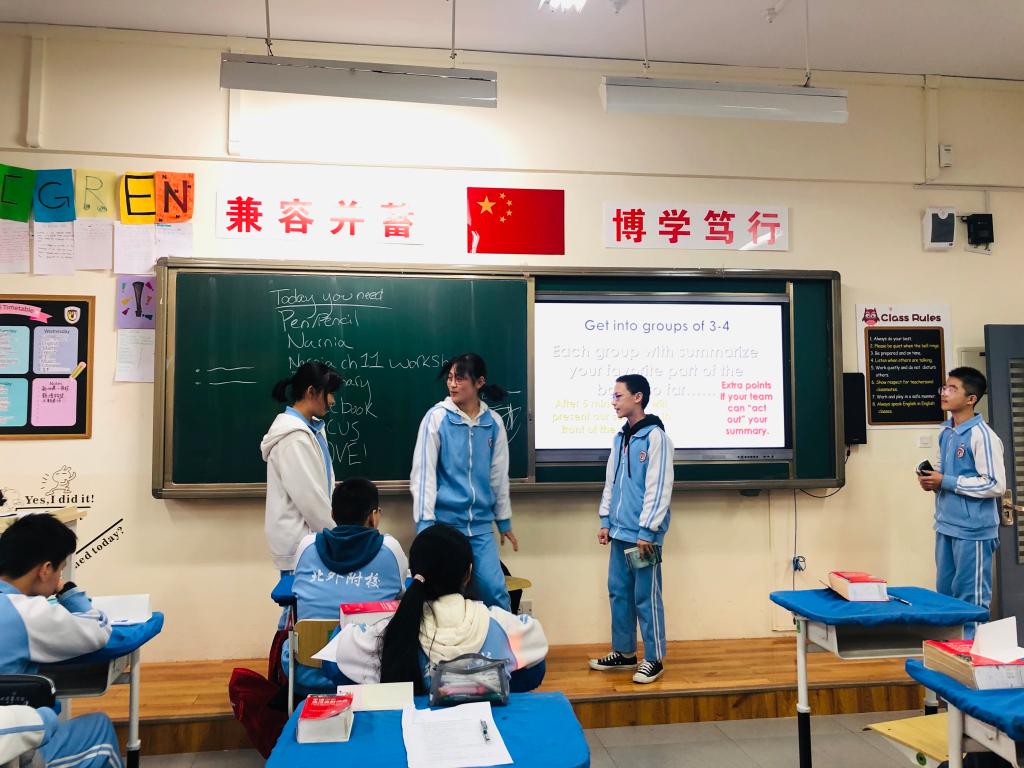
科學(xué)課閱讀課主題為“Warm-Blooded Animals”,,外教Mr. Blake用英語(yǔ)特有的思維方式不斷啟發(fā)學(xué)生探索Warm-Blooded Animals與Cold-blooded animals的不同。把詞匯的教學(xué)自然的融入到兩類動(dòng)物的理解上,,結(jié)合圖片及釋義,,讓學(xué)生在運(yùn)用理解中習(xí)得生詞。在純英語(yǔ)的交流環(huán)境中,,學(xué)生與外教最大程度上進(jìn)行著思維的碰撞和交互,。Mr.Blake還給學(xué)生播放了生動(dòng)的短視頻,讓學(xué)生更直觀的感受并理解所學(xué),。最后,,教師引導(dǎo)學(xué)生小組活動(dòng)制作海報(bào),比較兩類動(dòng)物的不同與相似之處,。本節(jié)課,,學(xué)生用英語(yǔ)來(lái)探索問(wèn)題、解決問(wèn)題的能力得到極大鍛煉,。
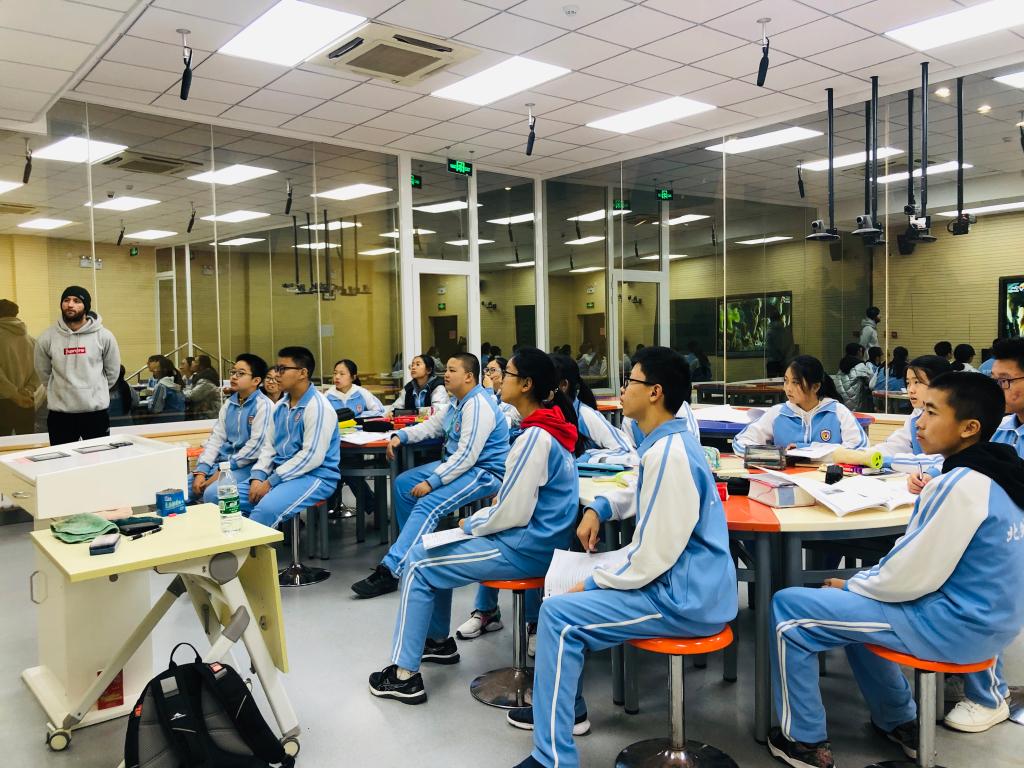
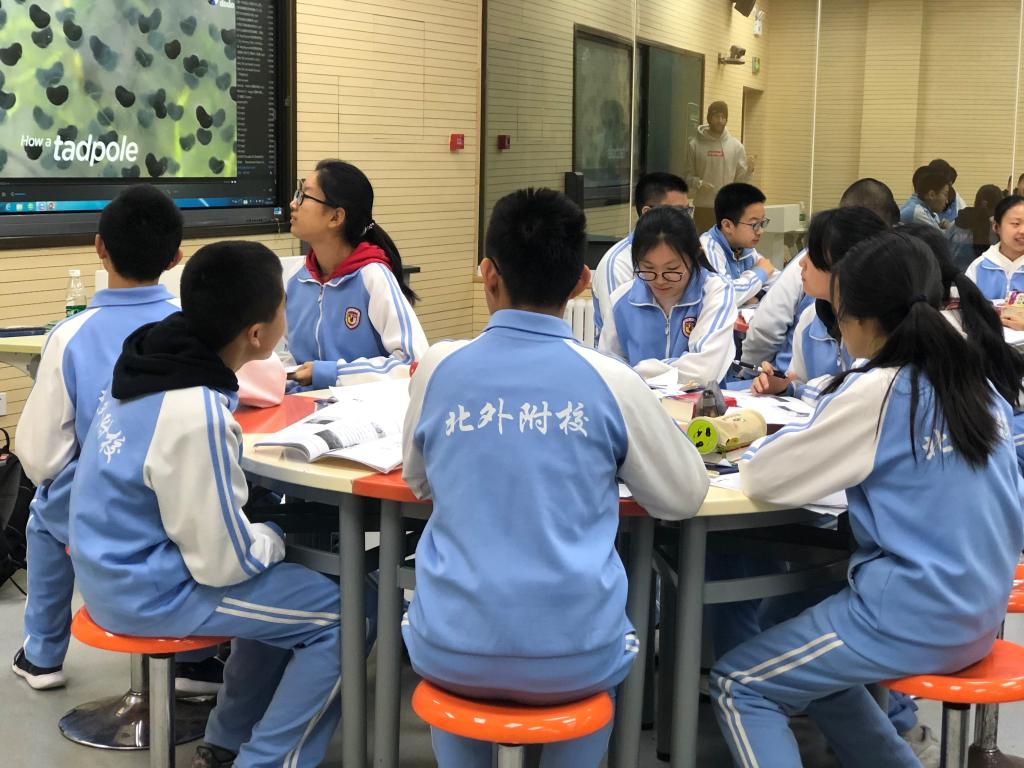
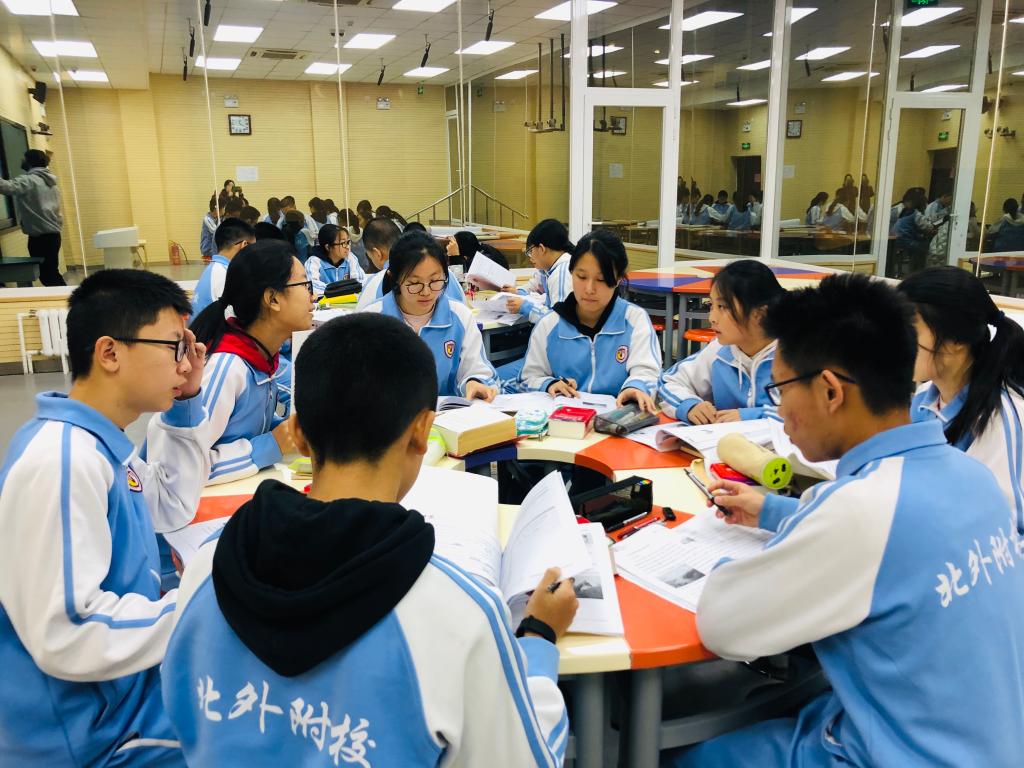
Mr.Amar 的一節(jié)閱讀課Karate空手道,。整節(jié)課圍繞運(yùn)動(dòng)展開,通過(guò)閱讀學(xué)習(xí)了這項(xiàng)運(yùn)動(dòng)的起原,,關(guān)于空手道的等級(jí)及學(xué)習(xí)的三個(gè)階段。教師設(shè)計(jì)的有梯度的閱讀任務(wù)引導(dǎo)學(xué)生在閱讀中了解此項(xiàng)運(yùn)動(dòng),。同時(shí)還拓展了其它國(guó)家的一些運(yùn)動(dòng)如:泰拳,、跆拳道、柔道等,。并通過(guò)圖片形式讓學(xué)生了解這些運(yùn)動(dòng)的起原及形式,。最后,,Mr. Amar提出了引發(fā)學(xué)生思考的問(wèn)題,運(yùn)動(dòng)的精神和品質(zhì),。學(xué)生們踴躍發(fā)言,,交流分享。使學(xué)生們的思維得到了很好的提升,。本節(jié)課以聽課教師和學(xué)生的單詞游戲charade而結(jié)束,。
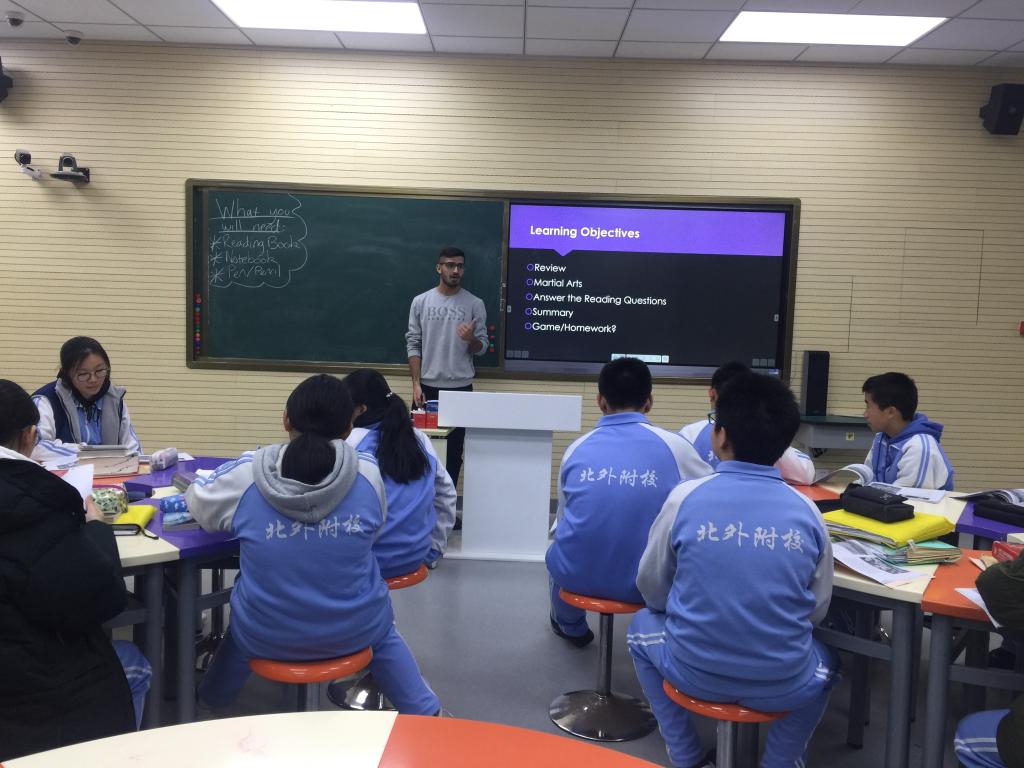
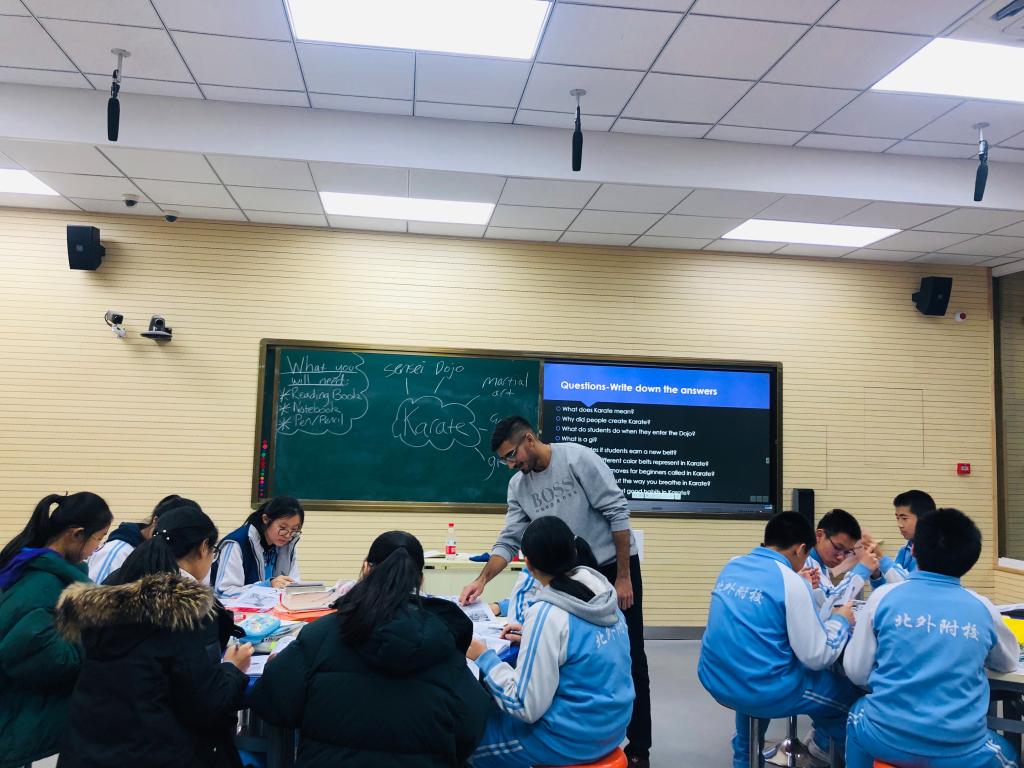
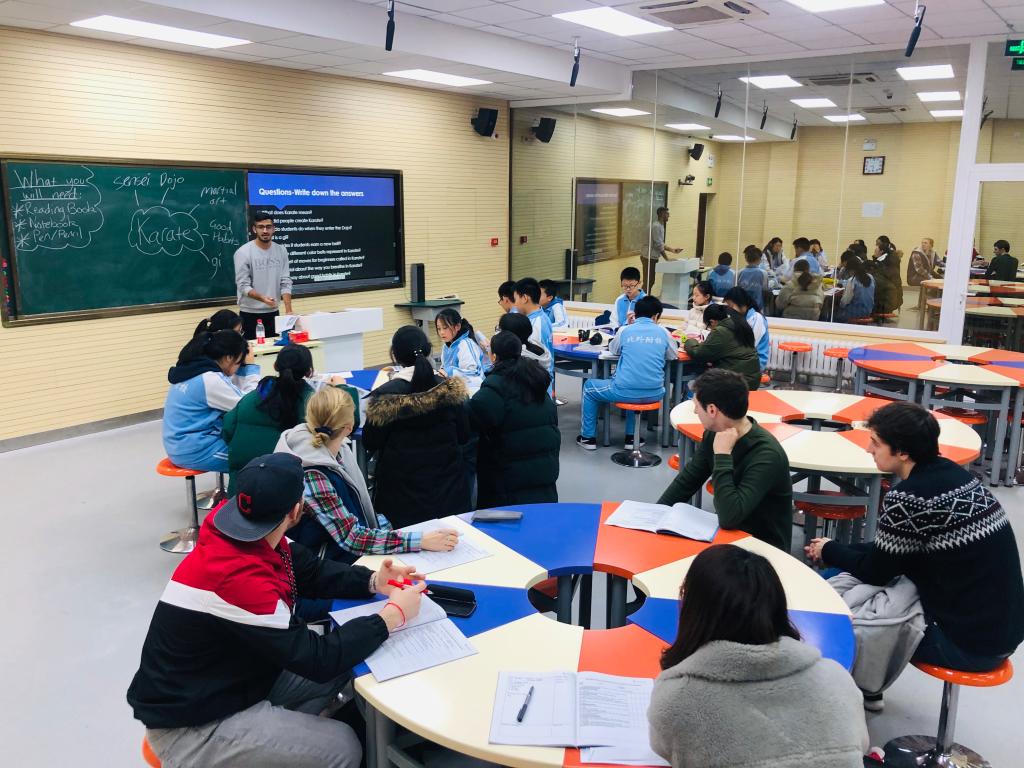
每節(jié)展示課后,中外籍教師共同參與公開課的評(píng)課與交流,。首先,,授課教師簡(jiǎn)單陳述本節(jié)課的目標(biāo)及口頭反思目標(biāo)的達(dá)成情況。然后,,聽課教師反饋聽課感受并提出建議,。總而言之,,這三節(jié)課都使聽課教師受益匪淺,。老師們都表達(dá)了聽課心得及自己可以提升的方向。
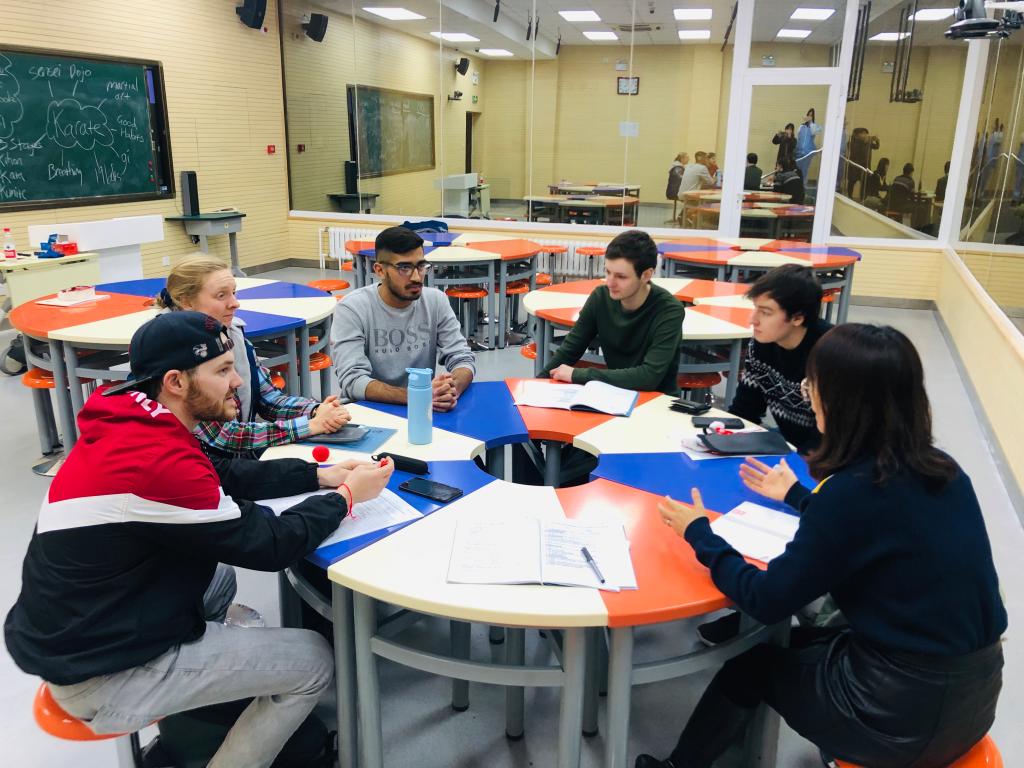
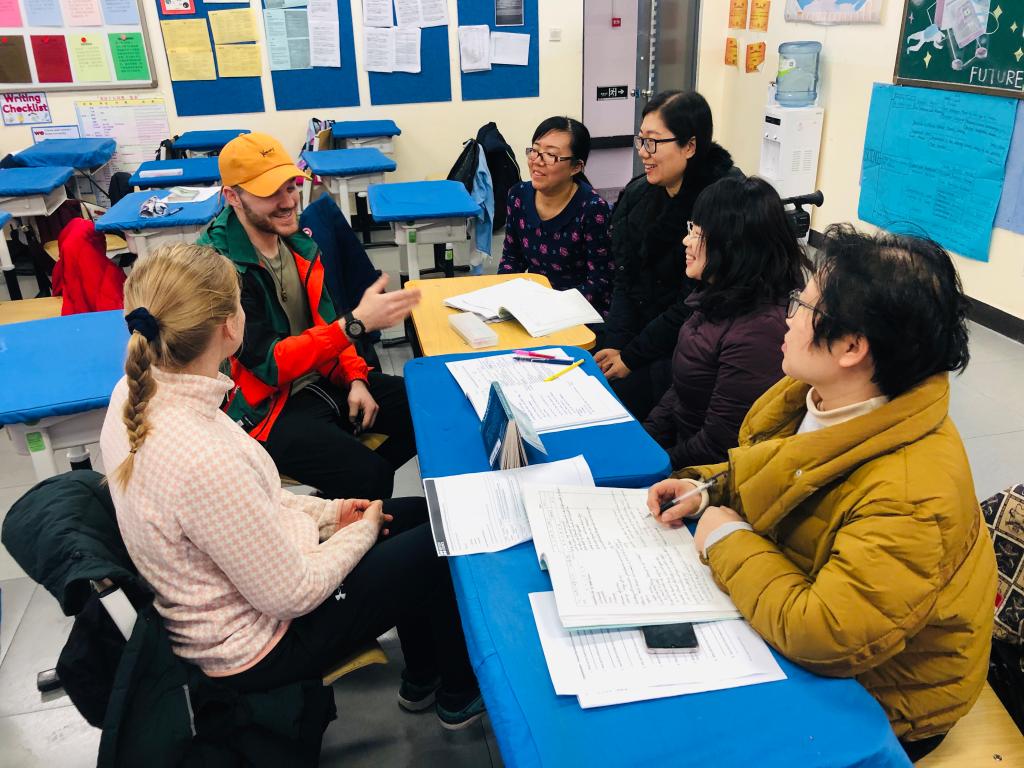
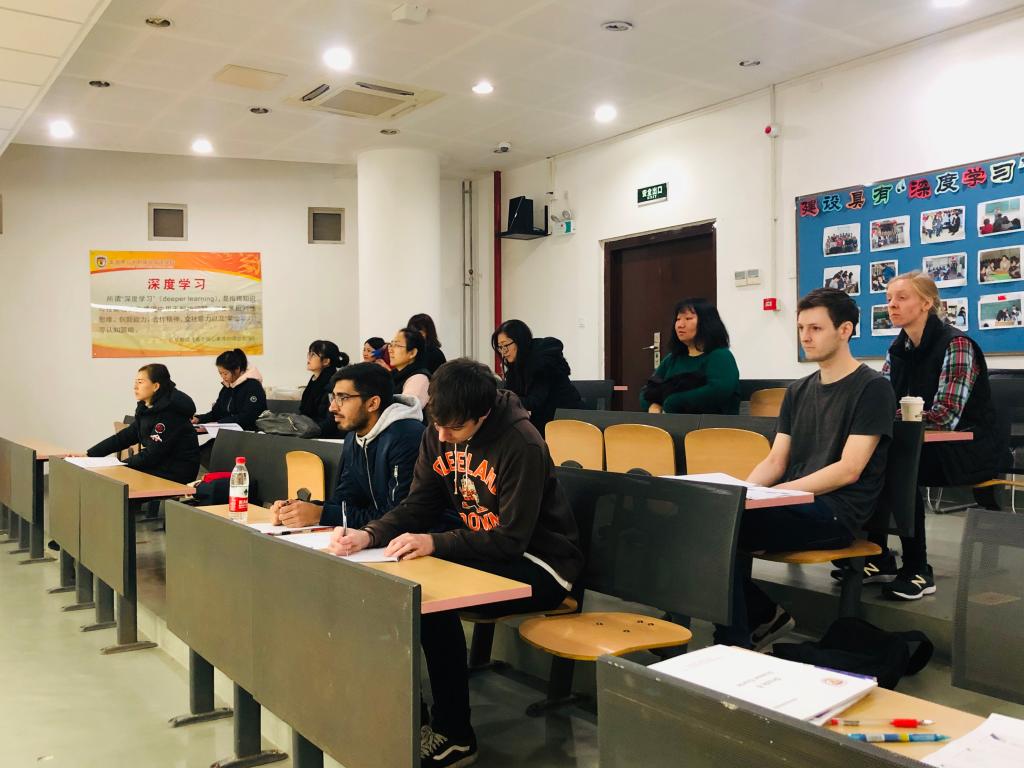
外籍教師的公開課展示活動(dòng),,既促進(jìn)了教師自身的專業(yè)成長(zhǎng),,也給中教帶來(lái)了更多的體驗(yàn)與學(xué)習(xí)交流的機(jī)會(huì)。我們將繼續(xù)學(xué)習(xí)與探索,,為學(xué)生的成長(zhǎng)助力,;為促進(jìn)學(xué)生英語(yǔ)水平的提升而不斷鉆研。
附:三位外教公開課反思
@ Mr. Zucker
Today I had the pleasure of hosting an open class for class 9B. Often we try to highlight our top scoring class for the open class but this time I decided to switch some things up. Although the students may not have the best test score, their sense of community has built an amazing atmosphere where learning has become fun and enjoyable. It is that reason that I chose to highlight their class as the open class. The class started with a warm up exercise.
During this exercise the students chose different section from their reading book, Narnia. It was here that the student shined the brightest. Because they are not the greatest test takers, I find it best to work with them in more "non-traditional" ways. Acting exercises are a great example of this. The students thought the portion of the chapter through reenactment.
After this we reviewed their class through comprehension questions. The students had started this during their previous reading class so today it was mostly review and making sure that they understood why the answers were what they were.
Overall, I thought the class went very smoothly. I am very proud of the community we have built with class 9B and truly believe that they are capable of being better.
@Mr. Blake
Class 9A from Grade 8 was chosen to partake in an open class for other teachers, both foreign and Chinese, to come and observe.
The subject for the class was “Biology: Warm-Blooded Animals” and was the last topic of the biology unit for the students.
The class involved an introduction of new vocabulary, new theories and deeper understanding of what makes warm-blooded animals different from cold-blooded animals, and some videos to allow students the opportunity to visualize the vocabulary and concepts. To finish, the students had to get into groups and complete a table that compared and contrasted warm and cold-blooded animals.
All in all, it was a good class that the students interacted heavily in. I hope the teachers watching were able to gain something from it too.
@ Mr. Amar
On Friday the 20th of December I had a reading “open class” with grade 8 class 9A. The lesson was focused on the Karate chapter of the Reading A-Z book. This was the second lesson that students had on this chapter of the reading. During the first part of the lesson the students summarized what we had learned from the reading in the previous lesson. This demonstrated their knowledge and understanding of the chapter as a whole as well as some of the finer details regarding the topic of Karate. The lesson primarily focused on getting the students engaged with the reading topic and learning new vocabulary surrounding the topic. The students learned the new vocabulary from the chapter. In addition, students were told further information regarding Karate and the good habits it teaches, outside the context of the reading. The students were tested on what they had learned in the lesson and reading with comprehension questions and a quiz. The students performed excellently in these activities and demonstrated great attention to details when scan reading the passage, a skill which will be extremely useful for them in the future.
The lesson concluded with a summary of Karate and the virtues it ingrains in those who practice it and how these virtues are helpful outside of Karate in one's working and personal life. For the end of the lesson the students and teachers participated in a game called charades where one person from each team had to act out silent clues in order for their teammates to guess a word. Both the students and teachers were eager to join in this activity and showed great enjoyment.
Overall, I believe the lesson went very well and the students behaved excellently. Some ideas for improvement of the lesson in the future would be to employ methods to get every students participating in answering questions and carrying out activities as well as allowing students more time to write down notes from the PowerPoint slides.
(撰稿:初中國(guó)際項(xiàng)目組 宋莉莉 編輯:王天慈)
熱點(diǎn)新聞
-
2024-05-24
北外附校邀請(qǐng)北外專家舉行高中學(xué)生法制講座
-
2023-12-26
【明德講堂】弘揚(yáng)外交精神 傳播外交智慧---外交官?gòu)垏?guó)斌為北外附校初一年級(jí)師生做主題講座
-
2023-12-14
揚(yáng)復(fù)語(yǔ)優(yōu)勢(shì) 促多元發(fā)展│北外附校舉辦2023年第二場(chǎng)校長(zhǎng)午餐會(huì)
-
2023-11-17
【初中·教育教學(xué)】“會(huì)”診學(xué)業(yè)質(zhì)量 賦能學(xué)生成長(zhǎng)
-
2022-05-30
小學(xué)教育簡(jiǎn)介(2022年5月版)




